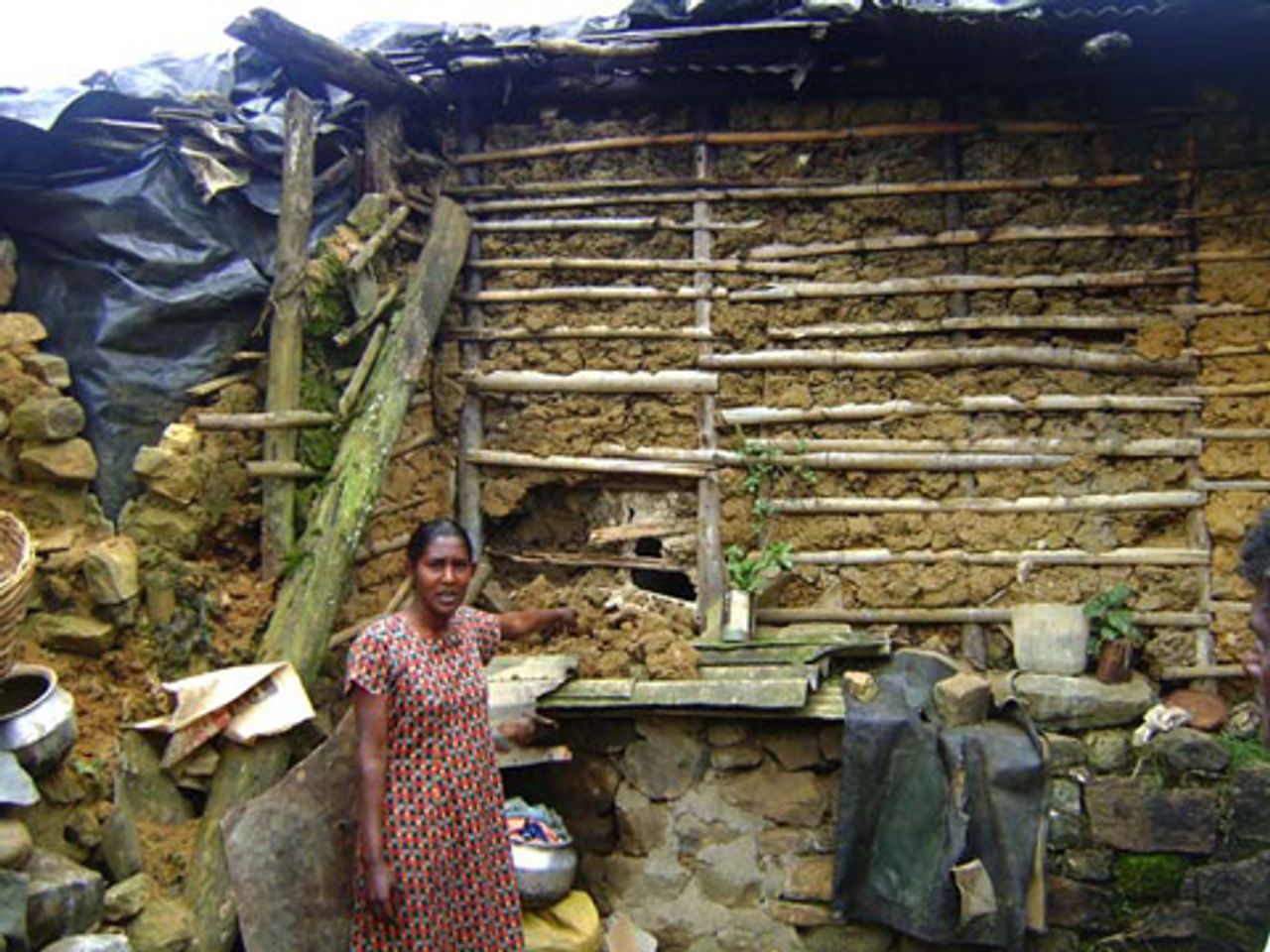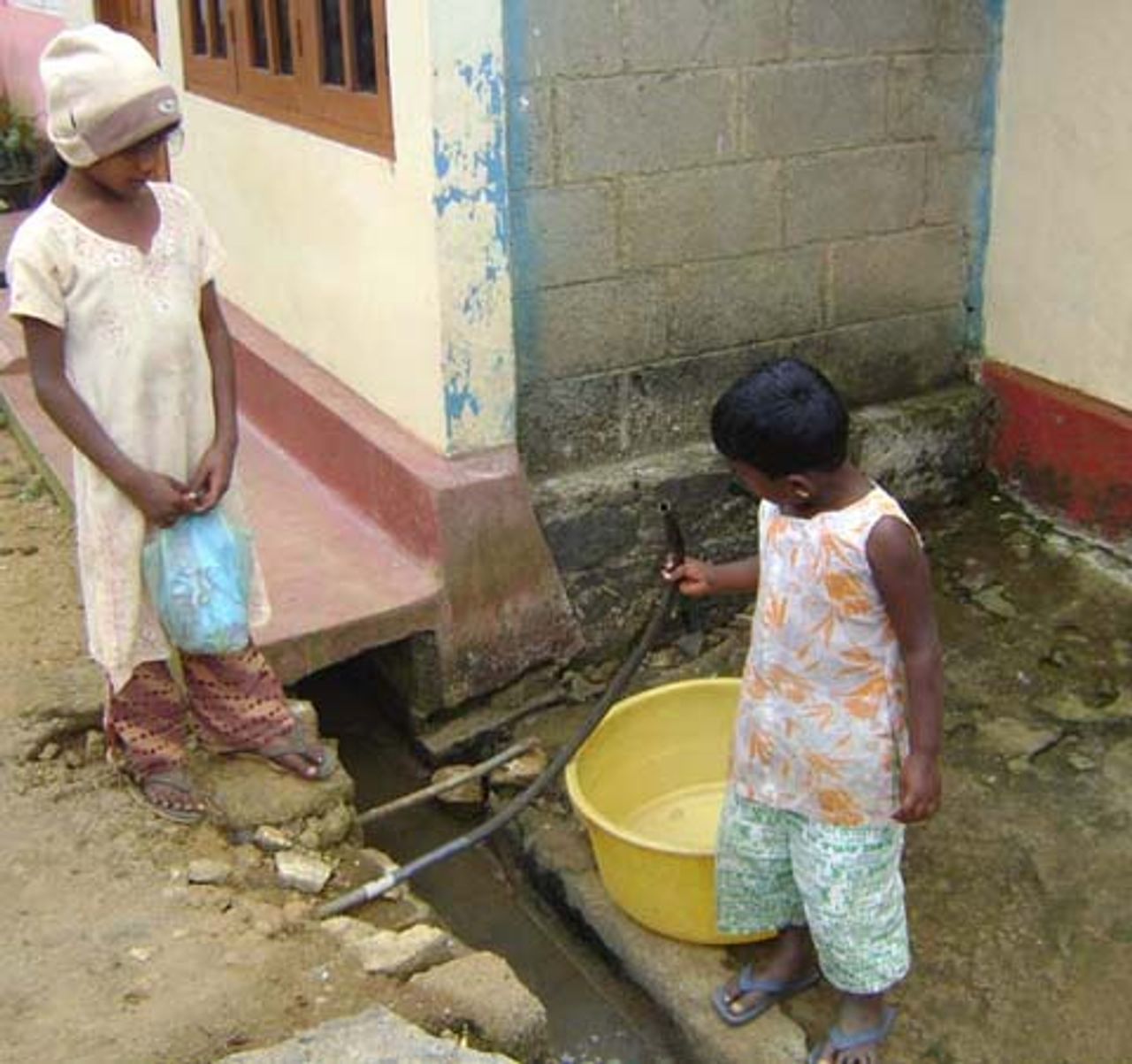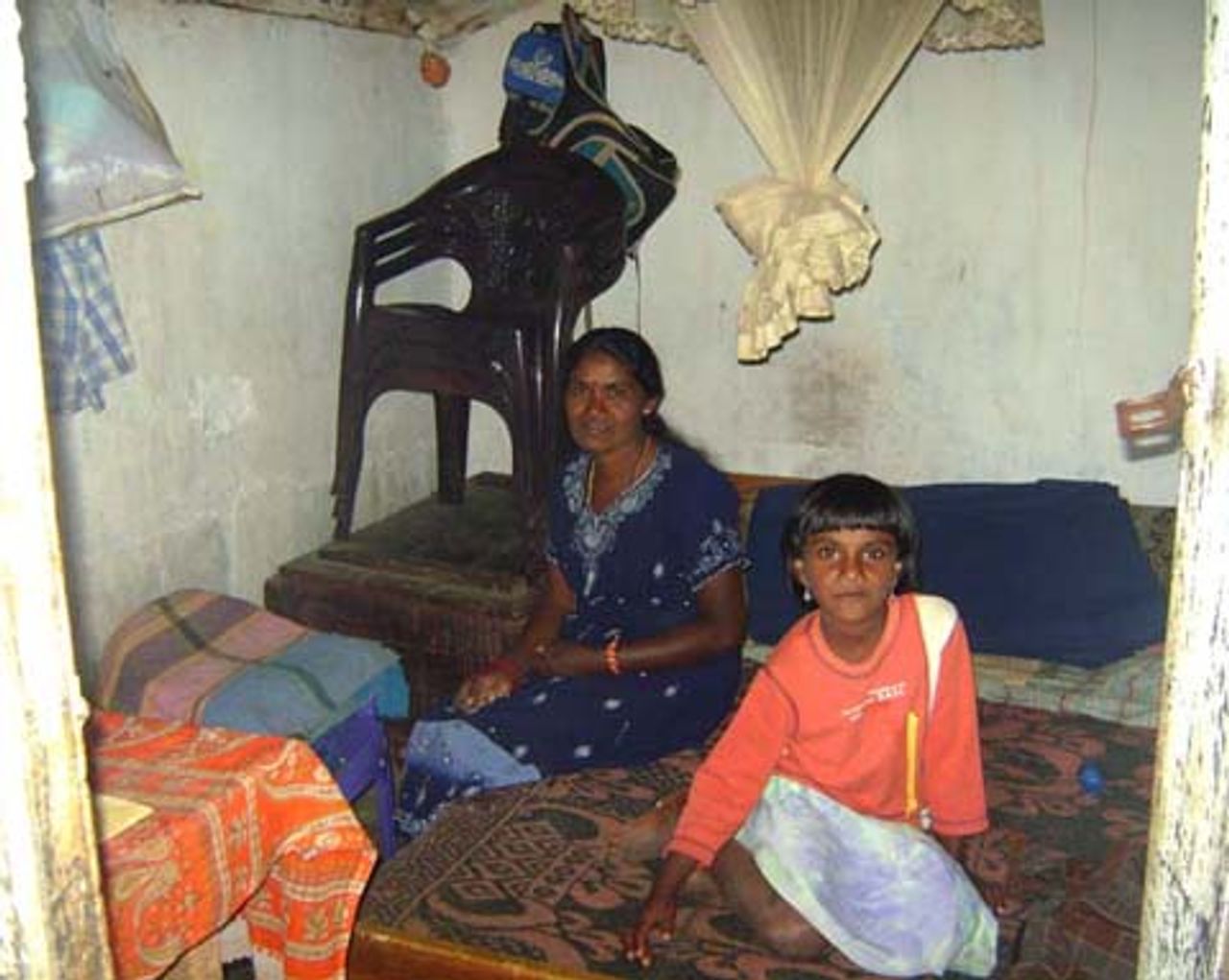The character of the recent collective agreement imposed by the main Sri Lankan plantation unions on workers has been quickly exposed as companies use its productivity clauses to boost profits and undermine the nominal wage rise.
The Ceylon Workers Congress (CWC), the Lanka Jathika Estate Workers Union (LJEWU) and the Joint Plantation Trade Union Committee (JPTUC) signed an agreement with the Ceylon Employers Federation (CEF) on September 16, binding half a million tea, rubber and coconut plantation workers to a poverty-level daily wage of 405 rupees ($US3.50) for the next two years.
The payment consists of a 285-rupee basic wage, a 30-rupee productivity linked allowance and a 90-rupee attendance allowance. The previous combined wage was 290 rupees, including allowances. Workers are quickly finding, however, that tougher productivity and attendance requirements mean that many only receive the basic wage of 285 rupees.
 SEP member Devarajah speaking with estate workers
SEP member Devarajah speaking with estate workersThe CWC, which played the central role in negotiating the deal, also functions as a political party and is a partner in the ruling coalition of President Mahinda Rajapakse. Union officials falsely claim that the agreement is a gain for all plantation employees, but employers are in no doubt about its benefits.
In a recent media release, the CEF hailed the “land-mark” agreement, saying the linking of wages to productivity was “imperative to the development of our economy” and was “clearly recognised by the signatories”. To emphasise the point, it added: “We are happy that the trade unions have also recognised the importance of productivity as the means to sustain this industry at a time when it is needed most.”
The CEF statement highlights a stark truth: the unions function as an arm of the employers and government. All plantation workers immediately felt the impact of the agreement as companies began imposing daily production targets that are virtually impossible to reach. If the new quotas are not met, employers do not pay the bonuses.
The agreement imposed on plantation workers is part of the government’s so-called “economic war”, which, in the name of “nation building”, is imposing the burdens of the country’s deepening economic crisis on working people.
Several plantation unions—including the Up-Country Peoples Front (UPF), the All Ceylon Estate Workers Union (ACEWU) and the Democratic Workers Union (DWU)—claim to oppose the agreement and promised “tough” industrial action after the Deepavali festival on October 17.
However, no campaign has been announced. When contacted by the World Socialist Web Site, DWU leader Mano Ganeshan brushed aside questions about the union’s plans, saying: “We will take up the matter after Deepavali but we still have not discussed it or decided on any future action.”
These “opposition” unions function as a safety valve for employers and the government in suppressing widespread anger over the deal. Like the CWC, the UPF is part of the government and its leader P. Chandrasekaran holds a ministerial post. In 2006, the UPF played the crucial role in shutting down strike action over the previous wage agreement.
Plantation workers are one of the most oppressed sections of the Sri Lankan working class. Under conditions of 22 percent inflation, the current drive for increased productivity is placing even greater economic and social burdens on them.
 Tea worker points to her damaged kitchen
Tea worker points to her damaged kitchenWSWS reporters recently visited tea estates in Hatton and Bandarawela in the central hills district and the Divitura Estate in the southern province, where they spoke to workers who are bitter about the union betrayal and the new productivity drive.
The team distributed more than 1,000 copies of the Socialist Equality Party (SEP) statement “Political significance of the Balmoral Estate Action Committee” in Bogawanthalawa township and the adjoining Kotiyagala Estate.
A female worker from the Kotiyagala Estate said: “Because of this rotten union agreement management has decided to increase our daily work-load from plucking 13 kilograms of tea leaves a day to 16 kilograms, starting next month. We will only get the 30-rupee allowance if we reach this target. We fought for a salary increase because of the unbearable cost of living but management has introduced new methods to cut our wages. Some of the unions agreed to this while the others are doing nothing.”
A 23-year-old worker from the same estate, added: “Management has cut our attendance allowance this month because we had a go-slow campaign for six days last month. We were supposed to get our festival advance for Deepavali this month but management has deducted this amount from the balance of previous advances and loans and so people have no money to celebrate Deepavali. This is what the unions have done to us.
“Earlier they deducted one kilo of tea leaves from each tea-plucker in order to retain those workers who do the weighing, carrying sacks and other extra ground work. But now they are deducting three to four kilos, saying that’s the commission. It is new to us and we don’t know what this commission means. There’s no limit to the difficulties that we’re undergoing and when we think about this situation we feel irritated,” he said.
 Children collecting water
Children collecting waterA 19-year-old youth from Suriyakanda Estate in Maskeliya said: “No one will get the 405-rupee daily wage. In our estate the daily target is 14 kilograms of leaves and if can’t meet that target we lose the 30-rupee daily production allowance. To get the 90-rupee attendance allowance we have to work 22 days per month. If you work one day less than that you lose 1,980 rupees for the whole month. I work as an anti-bug sprayer and it needs three workers to complete one hectare per day. Under this new agreement the unions are helping the company, not us”
Kurukude division workers from the Aislaby Estate in Bandarawela told the WSWS: “We didn’t take part in any protest action [over the wage claim], but only because the unions did not organise us. The management now feel strengthened by the agreement signed with the unions. Before the agreement they paid us even when we plucked eight kilos per day because there were few leaves due to the drought.
“When we asked the union leadership why we were not paid for the work we did in September they said that now we would only be paid if we plucked 16 kilos per day. Thus the management has been able to increase our work-load whether or not there are enough tea leaves on the bushes to meet the target. We will not even get our previous wage so how are we supposed to manage with the sky-rocketing cost of living?”
 Estate worker and her daughter inside their rented room
Estate worker and her daughter inside their rented roomWorkers at the Balmoral Estate have, with the political assistance of the SEP, formed their own action committee independent of the trade unions to fight for their rights. A group of female workers from the Aislaby Estate voiced their support, saying: “As the action committee has been built to fight for all of us we must support it. The unions are useless so we must also build an action committee here and should work to unite all workers in this estate in that action committee.”
Rubber workers at the Divitura Estate in Elpitiya in the southern Galle district told the WSWS: “Management has now increased the daily production targets for tea and rubber. The previous tapping target for rubber workers was 10-15 litres of latex per day and now, after the union agreement, this has been increased to 20 litres. On Sundays, as it is a holiday, we were paid a one-and-a-half days’ wage for the same target. Now we have to tap 25 litres on Sundays to receive that payment, which is impossible. To get 15 litres you have to tap 150 rubber trees per day, but for 20 litres you have to tap at least 250. We will never be able to meet the new target which means that we will be losing on the daily wage agreed to by the unions”.
Another worker explained: “I previously tapped the trees on my own but because the target increased yesterday I’ve been accompanied by my wife. We started tapping from 5.30 in the morning but were unable to meet the 20-litre target. What has really happened after the union deal with the employers and the government is a drastic cut back on what we get. We won’t be able to get anything more than the 285 rupees per day that we received earlier.”
Subscribe to the IWA-RFC Newsletter
Get email updates on workers’ struggles and a global perspective from the International Workers Alliance of Rank-and-File Committees.
